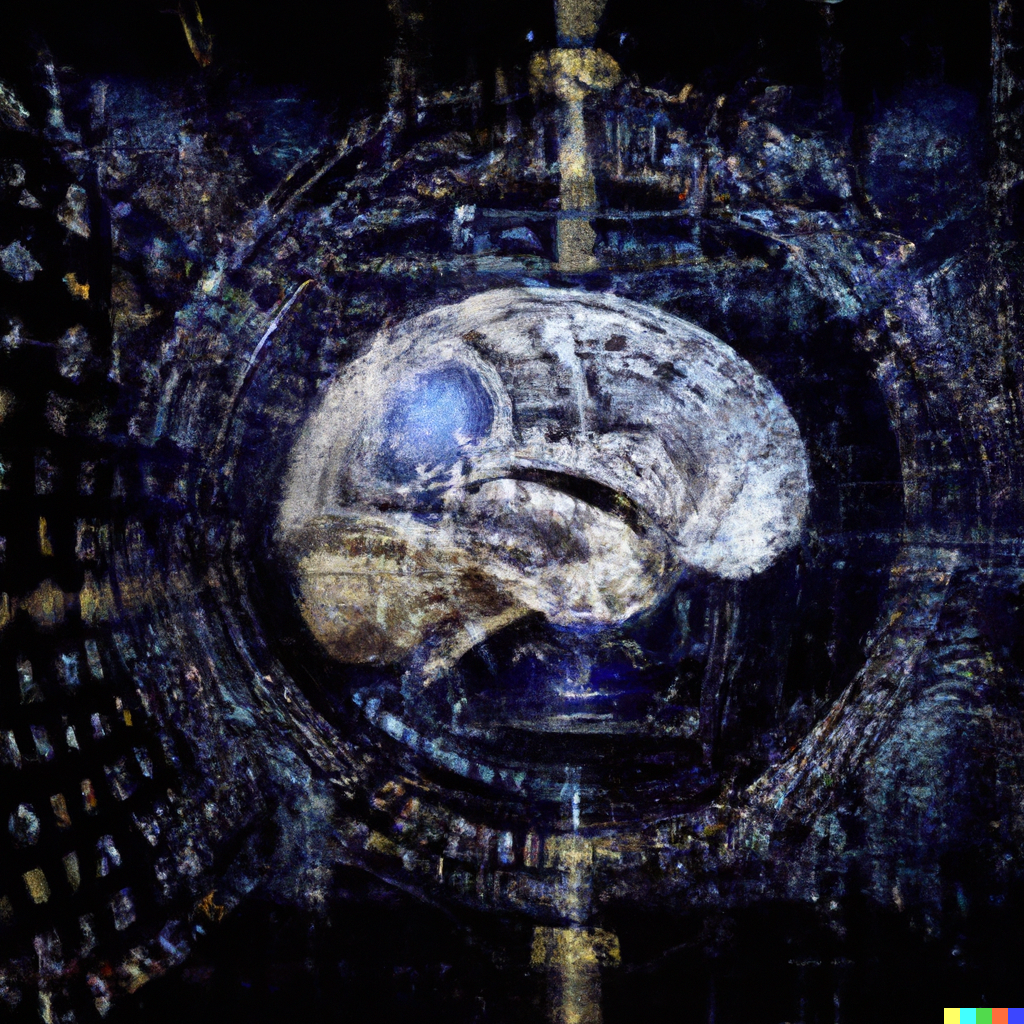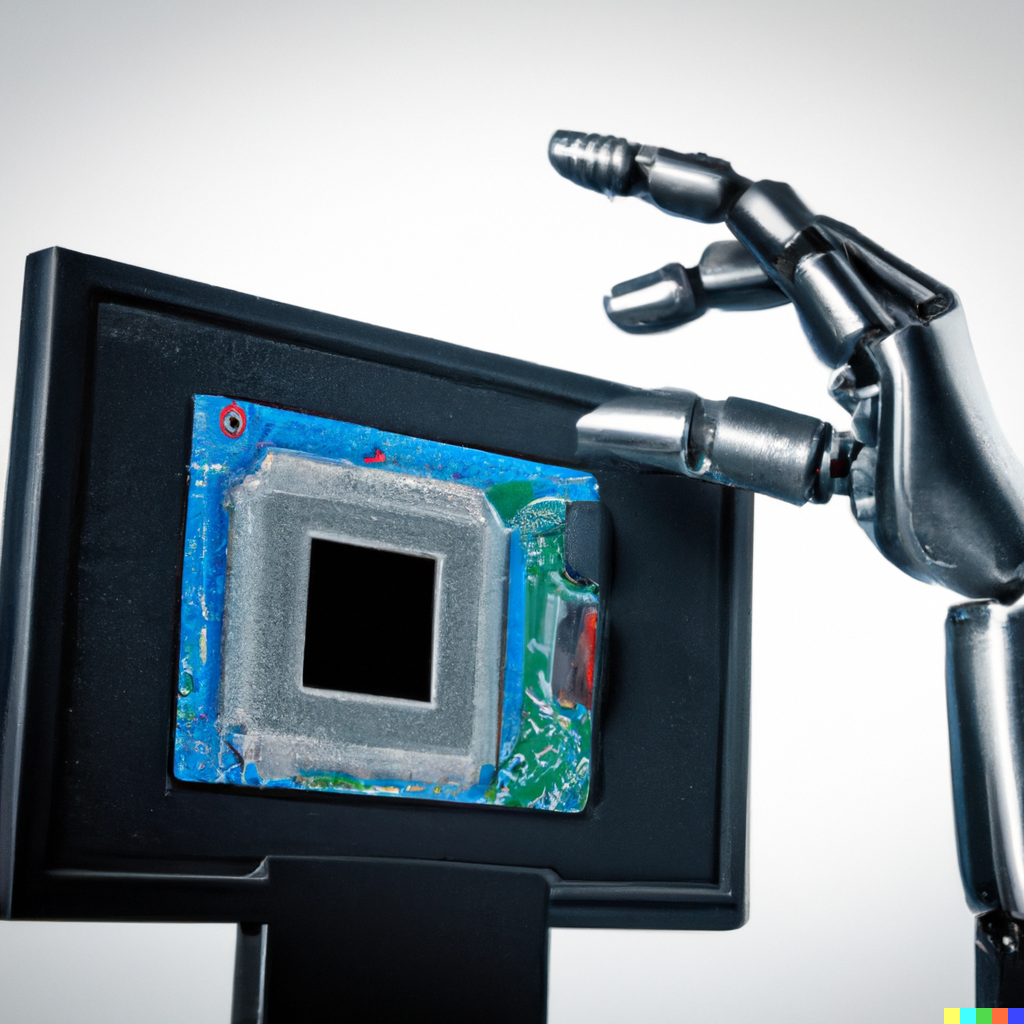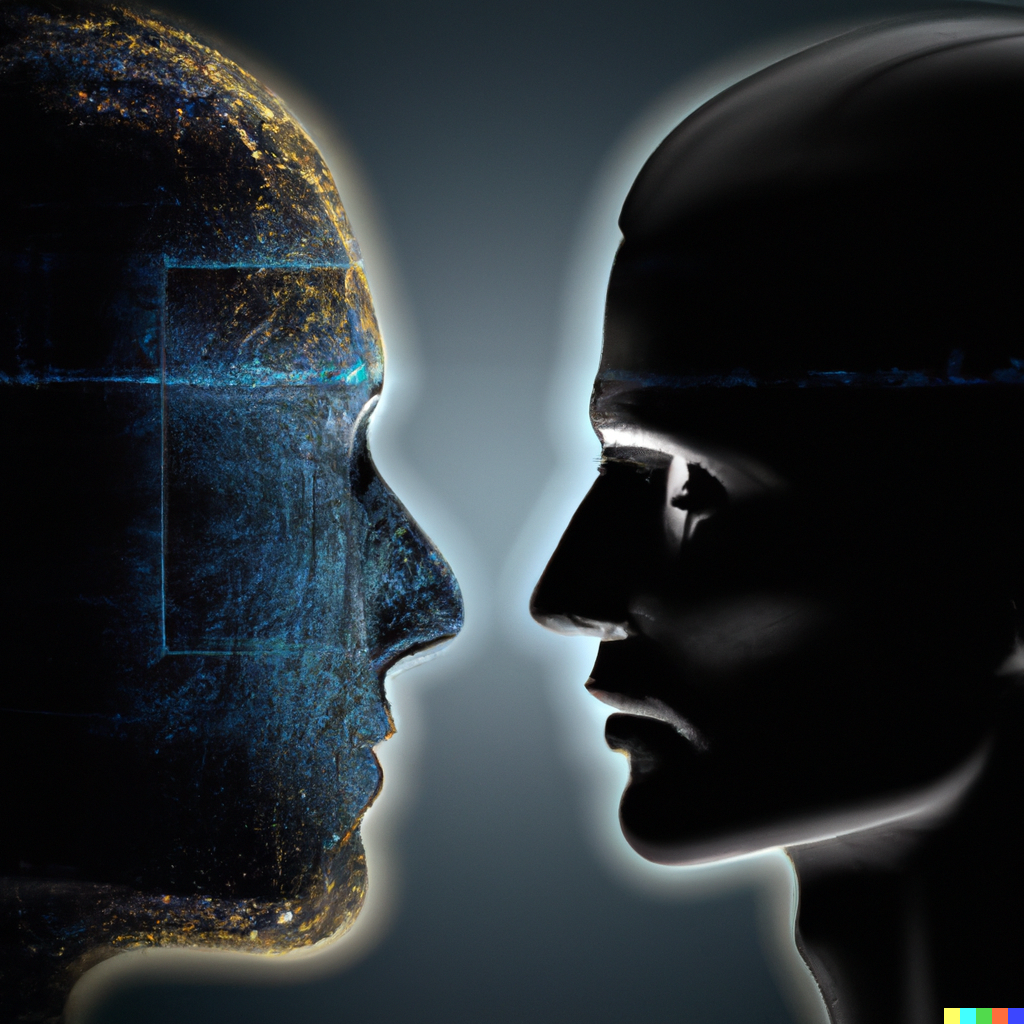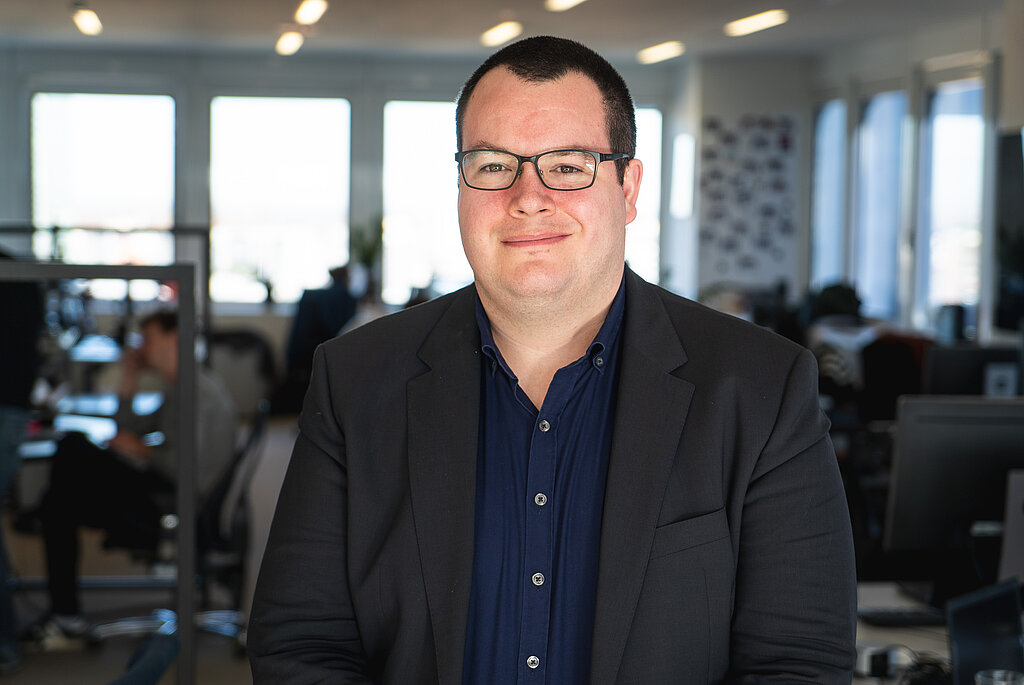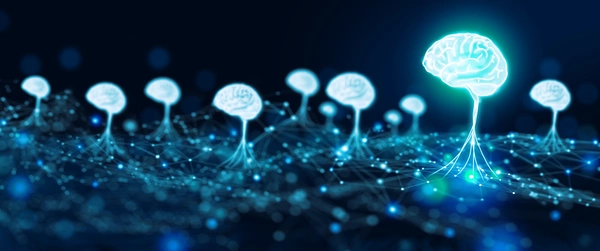Sonja Philipp (Data Center Group): Good afternoon Professor Glauner. Thank you for taking the time to talk to us about artificial intelligence (AI). Let's start with the question: What is AI? What defines it?
Prof. Dr. Patrick Glauner: There is no single definition of artificial intelligence. Just as you ask 2 lawyers about a topic and get 3 different answers, it is the same with AI experts. For me, artificial intelligence means automating human decision-making behaviour. A human being makes decisions about 30,000 times a day. This is what we want to automate with AI with the aim of making these decisions faster, cheaper and better.
S. Philipp: In which everyday situations do we already encounter artificial intelligence?
P. Glauner: Currently, ChatGPT is omnipresent, a chatbot that uses artificial intelligence to communicate with users via text-based messages. We also regularly use speech and object recognition on our smartphone and spam filters are also part of it. We often deal with AI hundreds of times a day in our everyday lives without perceiving it as such, as it is often part of a larger hardware or software system.
S. Philipp: To take up the topic of ChatGPT again: Do you see this development as a trend or as the future?
P. Glauner: ChatGPT is a highly exciting project, which in my opinion is only one part of a larger transformation for the future. Not only to write texts, but also source codes. Here, the use of AI provides a huge increase in productivity. The model still makes its mistakes, but compared to 10 years ago, we've come a long way there. I am curious to see where we will be in 5 years.
S. Philipp: AI has a reputation for destroying jobs. Should we be worried? Which areas in particular?
P. Glauner: I don't think it will make everyone unemployed. Due to the prevailing shortage of skilled workers, unemployment is the least of our problems. Rather, we need to automate in order to maintain our prosperity in Germany. That's where AI can be a great opportunity. The job profile itself will change. Professions will disappear, but new ones will also emerge. But this development has been the case since the beginning of the industrial revolution in the second half of the 18th century. Education and training is essential in this case. I can and must use AI to remain competitive. AI in itself does not make me unemployed, but my competitor using AI makes me unemployed. If he is 10 or 100 times more productive through AI, then I have a big problem.
S. Philipp: What role does AI play in SMEs, especially in industry, and what are the potentials?
P. Glauner: Decisions are made everywhere. Customer enquiries are answered, offers are written, solutions are calculated or designed. Customers expect answers and service around the clock. Chatbots can help massively here, for example, so that the customer gets his answer on Saturday morning and doesn't have to wait until Monday. Things and tasks can be implemented faster, cheaper and better through AI.
S. Philipp: Are these tools superior to humans already?
P. Glauner: Depending on the application, AI can already make better decisions than humans, especially in the area of quality management, optical inspections or the ability to identify diseases faster than doctors. However, these are all very specialized AI applications that cannot make decisions on the same scale as a human being.
S. Philipp: You mentioned earlier that ChatGPT is still error-prone. What dangers do you see from AI, especially with regard to medical diagnoses?
P. Glauner: Where life and limb are at stake, we should not let AI make the final decision. It can be a great opportunity to support doctors, but not the last resort. With ChatGPT in particular, we see how convincingly AI can also present nonsense. But the more these tools are used by humans, the better they become.
S. Philipp: The development of AI has progressed rapidly in recent years. The EU is trying to regulate AI through the AI Act. The AI Act provides meaningful protections for fundamental rights, public health and safety. It aims to protect consumers and incentivise the adoption of the technology. But there is also criticism of the draft: for example, that many applications are classified as high-risk, thus blocking their development in Germany and the EU. How sensible is this regulation in your opinion?
P. Glauner: As an expert, I have advised the German, the French, and the Luxembourg Parliament on this issue. The EU Commission certainly has a noble goal with the AI Act, but it completely misses the reality. It claims that AI operates in a completely lawless space and therefore needs to be regulated. This is not the case. AI is not allowed to do anything discriminatory or prohibited already. A regulatory gap could be identified and closed, but the EU Commission has not done so, instead imposing drastic requirements across the board. This leads to trivial things like AI in education being placed in the high-risk area. The requirements are so high that a medium-sized company or start-up could only cope with them by setting up its own AI compliance department to work through unclear requirements. The AI Act would massively hinder innovation in Europe and shift value creation further towards the USA and China.
S. Philipp: This goes along with my next question: How do we compare internationally with the EU-wide AI Act?
P. Glauner: The AI Act will stifle innovation and cost value creation. Politicians often lack an understanding of AI. They claim, for example, that AI can discriminate or "go crazy" on its own. But that is not possible: if data has a bias1, then AI also learns this bias. But this data comes from humans. Machine learning is often realised through matrix multiplication. This will not develop a consciousness on its own to destroy humanity. Unfortunately, this is how it is presented in the press.
S. Philipp: You said that AI takes decisions away from us. Do you think that this will lead to a popular misconception that humans will no longer have the power to make decisions?
P. Glauner: I see AI as an added value for decision-making. It can serve a much larger sample and data set and make decisions much easier, faster and cheaper.
S. Philipp: The Data Center Group builds data centres and implements IT infrastructures. What influence does AI have in relation to these?
P. Glauner: AI can help in the planning of data centres. Whether in resource conservation, space-saving construction and generation of faster offers. The hardware for data centres is also changing. For example, more GPUs2 are being used for AI, as well as more quantum computing in the future. (Editor's note: This means greater power densities per rack with an impact on air conditioning and power consumption). Various dimensions in the data centre sector are thus affected by AI.
S. Philipp: Keyword sustainability: Computing power in Germany has doubled within the last 10 years. Forecasts show that power consumption will continue to rise sharply. The use of AI consumes a lot of computing capacity for training or optimizing neural networks. What potential does AI have to move from problem to solution?
P. Glauner: AI offers a great opportunity to make better use of resources, especially in the area of the energy transition. Smart grids are a good example. AI also creates new additional power consumption. For example, in recent years there has been progress through so-called "deep learning", i.e. deep neural networks. A lot of nonsense has also come out of this, because these are not needed for all problems. Smaller models that require less energy are often sufficient. Building bigger and bigger neural networks that then consume more and more data and power is not the future. Instead, we should methodically think through how we can learn even better with less power and less data. The journey must go there.
S. Philipp: AI can also help to streamline code and save computing capacity there as well.
P. Glauner: Yes, of course. One example of many is a recent paper by Google Deepmind: using new AI-designed algorithms, values could be sorted faster.3 If such sorting takes place billions of times a day and an AI simplifies these processes, this has a significant positive contribution to resource consumption.
S. Philipp: You are a professor of artificial intelligence at the TH Deggendorf. What does this study programme involve? What do you have to learn to work with AI?
P. Glauner: We have both Bachelor's and Master's programmes on the subject of AI. In the bachelor's degree, the foundation is computer science-based with the topics of programming, algorithms and data structures, methodology, mathematics, enriched with many lectures on AI. The students are then well trained after 3.5 years. The programme is very practice-oriented, with practical semesters and the final thesis in industry. After graduation, you can add a Master's degree or successfully enter professional life directly. Master's programmes are available in AI and mechatronics, for example.
S. Philipp: Do you have a favourite use case for AI? Where have you been most positively impressed by an application that uses AI?
P. Glauner: Through my advisory work, I always see a lot of exciting things. Unfortunately, I often can't talk about them publicly. In the case of mechanical engineering and AI, however, I was allowed to publish something. When you think of AI in mechanical engineering, you often only think of predictive maintenance4 , but there are also many developments in the areas of special machine construction or automated planning. On my website you can also find a publication on this topic [Digitalization in Mechanical Engineering].
S. Philipp: Where do you yourself use AI privately? Have you trained your smart home or do you let Alexa assist you?
P. Glauner: (laughs) In my house from the late 70s, there is certainly still potential in the smart home sector. I like to use applications with voice recognition. And of course ChatGPT to improve and optimise my texts. I don't see that as objectionable at all, but rather as an opportunity to be more productive.
S. Philipp: Thank you very much for the interview.
Prof. Dr Patrick Glauner is Professor of Artificial Intelligence at the Technical University of Deggendorf. As an expert, he has advised the parliaments of Germany, France and Luxembourg. He is listed by CDO Magazine as one of the world's leading professors in the field of data.
Explanation of terms:
1) Bias: Prejudice, preconception.
2) GPU: Graphic processor unit; processing unit with improved mathematical computational capability, for use in computer graphics and machine learning tasks.
3) Deepmind: New AI-generated algorithms provide less computing capacity and therefore lower energy consumption (source: Google Deepmind, www.deepmind.com/blog/alphadev-discovers-faster-sorting-algorithms)
4) Predictive maintenance: Forecasts based on historical and real-time maintenance-related data
Source Header Graphic and Picture Gallery: AI-generated graphic on the topic of artificial intelligence (DALL·E)
Source Foto Prof. Dr. Patrick Glauner: private

